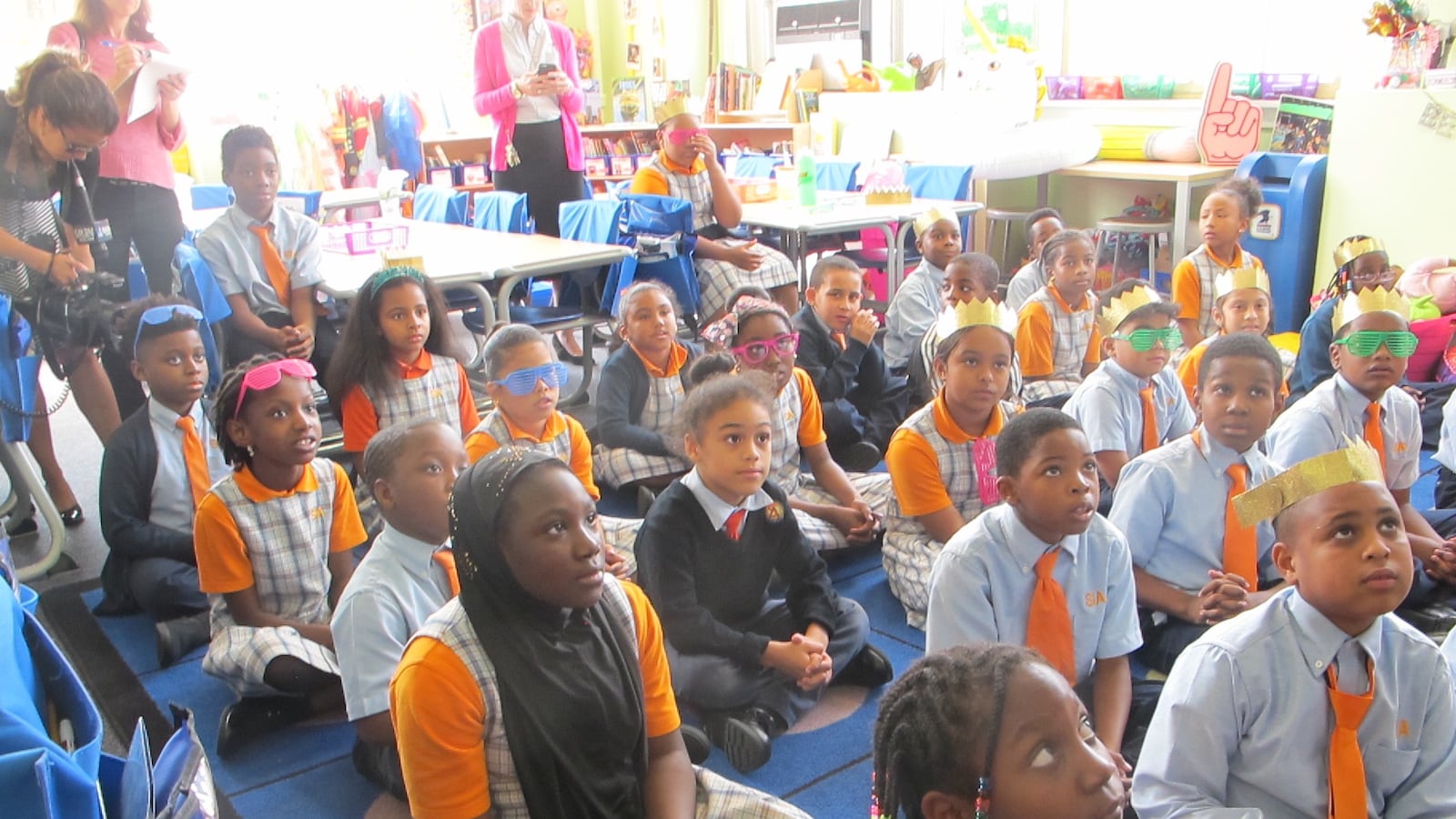The New York City education department is accused of routinely delaying and denying special education services to Success Academy students in the Bronx, according to a lawsuit filed Tuesday in federal court by parents whose children attend the charter network.
The six families claim their children’s rights to an appropriate education are being violated and are asking the city to follow federal and state law regarding special education services.
“This is a systemic issue,” said Aaron Safane, an attorney with Success Academy who is leading the case. “You would expect our special education numbers to look pretty similar to [Department of Education] schools, and they’re just drastically different.”
The suit paints a picture of a network fighting for services for its students with disabilities, in stark contrast to complaints some critics have leveled against Success. The network has been accused of suspending and even pushing out students who have special needs in an attempt to improve test scores, allegations the network has denied. About 17 percent of students at Success have a disability, according to the network — almost on-par with all city schools.
The suit also sets the network’s famously challenging approach to teaching and learning at the center of its clash with the city. The education department believes that Success Academy students are referred for special education because the network’s “standards are too high, and that special education services would be wasted on many Success Academy students,” according to the suit, resulting in disproportionate denials.
In response to questions about the suit, education department spokeswoman Toya Holness said the city would review the complaint but did not directly address any of the allegations.
“Collaboration is at the core of our approach to partnering with charter schools to ensure that the needs of students with disabilities are met,” Holness wrote in an email. “We’ll continue to work with Success Academy to ensure that charter schools and families, alongside the DOE, are working together to determine a student’s eligibility for special education services.”
Only 3 percent of Success Academy students in the Bronx had their requests for special education services considered within the required timeframe — compared with 66 percent of district students, according to the suit. Success Academy students in the Bronx wait an average of 162 days for their requests for special education services to be determined, according to the suit, even though a determination is supposed to be made within 60 days of receiving parental consent for an evaluation. One Success Academy student waited 653 days.
Success Academy students are also far less likely to be approved for special education services: Only 40 percent receive additional supports, compared with 80 percent of district students.
An arm of the education department called the Committees on Special Education are responsible for determining whether students in private and charter schools should receive special education services, such as speech therapy or a smaller class setting. The suit targets the committee that coordinates services for schools in three districts across the Bronx, including six Success Academy schools.
One Success Academy student was initially denied services despite his mother’s concerns that he had dyslexia. Almost two school years passed, more than 500 days, before a second referral for special education was approved for the kindergartner. In the meantime, he had to repeat a grade, the suit charges.
The network accuses the education department of dragging out the process by requiring its own consent forms, stalling on inputting requests into the city’s tracking system, and scheduling meetings at times that are inconvenient for parents.
Charter schools are often accused of not serving the same proportion of students with special needs as district schools, but the New York City Charter School Center estimates that the percentage of students with disabilities in charter schools grew to 17 percent in 2016-17 — compared with about 20 percent across all city schools that year.

